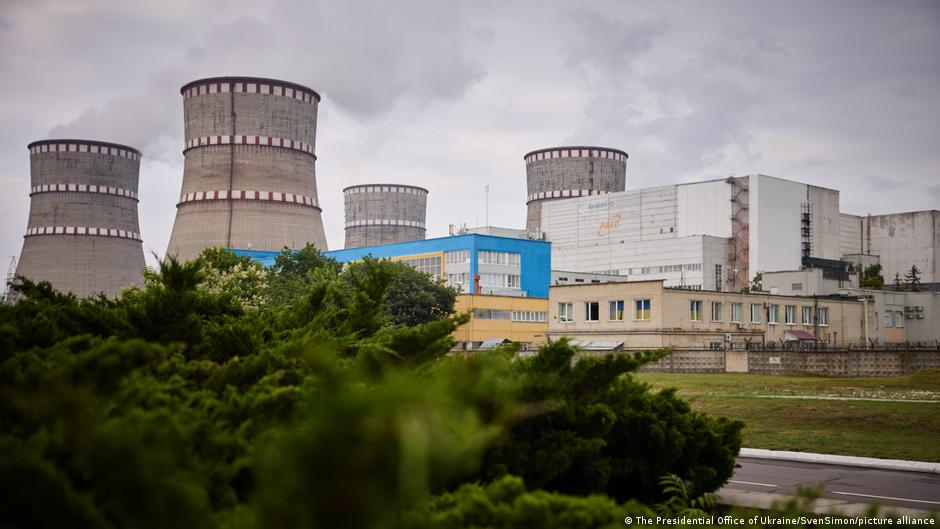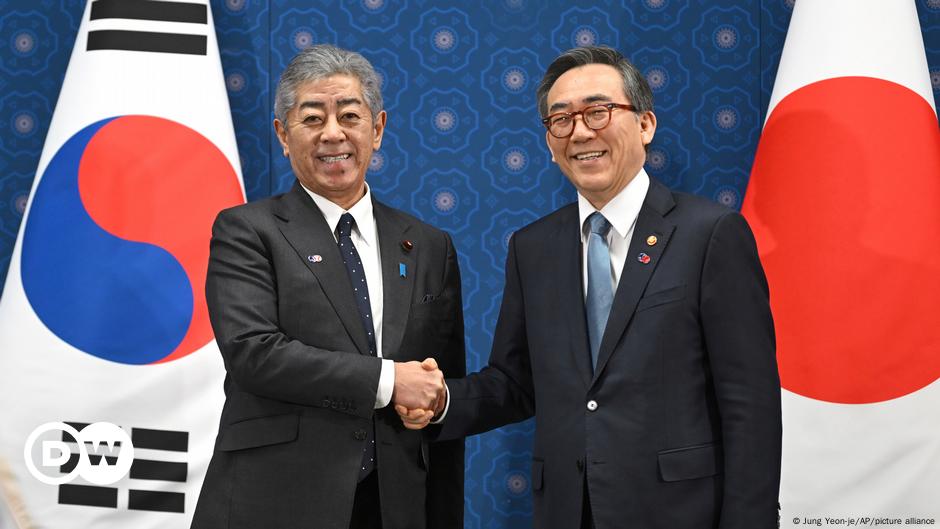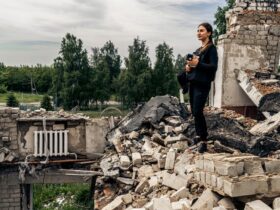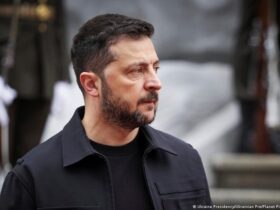In the fourth winter of Russia’s aggressive war, Ukraine’s energy infrastructure has already been seriously damaged. Now, its resilience is being further tested by a new wave of missile attacks. Russian forces have intensified their attacks targeting thermal power plants and substations of nuclear power plants.
In a major attack on the night of 8 November, Russia attacked substations at the Khmelnitsky and Rivne nuclear power plants. Foreign Minister Andrey Sibiha spoke of absolutely planned attacks. The International Atomic Energy Agency (IAEA) reported on social media platform X that both nuclear power plants had to reduce their power output.
Sharp attacks on nuclear power plants reflect new strategy
Volodymyr Omelchenko, an energy expert at the Razumkov Research Center in Kiev, describes the trend towards hybrid attacks on nuclear power plants. “The aim is not only to disrupt power supply to the affected areas, but also to destroy nuclear power, the basis of the Ukrainian energy system,” he said.
“As long as the nine Ukrainian nuclear power plants are operating, our energy system cannot be harmed; it continues to function. That is why the Russians have taken the final step and are launching hybrid attacks on nuclear power plants.”
Meanwhile, Omelchenko told DW that recent attacks on Ukrainian nuclear power plant substations have been less focused on disrupting power supplies to consumers.
Instead, Russia wants a serious situation to develop in the reactors themselves. When a substation is attacked, the nuclear power plant cannot send electricity into the grid and the reactor block must immediately switch to emergency mode. This poses a danger to the reactor, because it cannot be shut down quickly. As Omelchenko explains, the security protocols do not include procedures for attacks on nuclear power plant infrastructure – largely because no one in the world expected this to happen.
In November 2022, Russia attacked a Ukrainian nuclear power plant substation, causing a brief blackout. Three years later, Russia is still trying to initiate power cuts in Ukraine in an effort to break up the power grid into isolated energy islands.
However, this time the Russian Army has changed its strategy. Experts say the latest attacks have put intense pressure on a single facility.
“First, Russia deployed Martyr drones against one target, and then five to seven ballistic missiles. The solid protective structures that have been erected can withstand Kalibr missiles, but are powerless against Russian Kinzhal and Iskander missiles,” nuclear expert and former board member of the State Nuclear Regulatory Inspectorate Olha Kosharna warned in an interview with DW.
Moreover, he said, the ground reality has been worsened by widespread destruction of power plants, substations and transmission systems.
The risk of prolonged power cuts is increasing
“Unlike 2022, when the power grid was restored within 14 hours thanks to higher generation capacity and wider networks, the situation is completely different now,” Kosharna said. “Almost all power generation east of the Dnipro River has been destroyed, including the Zimiv, Kharkiv-5 and Chernihiv thermal power plants. The Vuhleder thermal power plant is located in the Russian-occupied zone. Hydroelectric and thermal power plants have been damaged across the country, including the Dobrotvir, Burshtin and Ladyzin plants.”
Victoria Voytsitska, a former member of the parliamentary committee on energy and nuclear security and a member of the supervisory board of the think tank We Build Ukraine, says Russia is deliberately attacking where it can cause maximum, long-term damage to Ukraine. “This is clearly shown by the attacks on the Trypilska thermal power plant to cut off electricity in Kiev and the surrounding area during the morning and evening peak hours. As well as the attacks on the Kiev substation, without which the supply of electricity from the Rivne Nuclear Power Plant, the city’s main source of energy, cannot be guaranteed,” Voytsitska posted on Facebook, adding that it would be difficult to supply Kiev with electricity and heat this winter.
In the wake of Russia’s recent attacks on nuclear facilities, Olena Pavlenko, head of the Dixie Group think tank, is calling for high-level consultations with international partners to help Ukraine cope with the winter.
What can be done to prevent blackouts in Ukraine?
Meanwhile, Ukraine calls on all countries, especially China and India, to urge Russia to stop attacks on nuclear power plants. Foreign Minister Andrey Sibiha has said, “Global pressure is needed to force Moscow to end its nuclear blackmail.” Ukraine also wants an emergency meeting of the International Atomic Energy Agency (IAEA) Council to respond to the “unacceptable risks” posed by Russia’s shelling of Ukraine’s nuclear infrastructure.
IAEA Director General Rafael Grossi struck a more cautious note in his statement: “Substations are vital to our efforts to maintain nuclear safety and security during wartime. Their continued degradation is a deep source of concern in this regard. I continue to call for maximum military restraint to maintain nuclear safety and avoid an accident with serious radiological consequences.”
Some experts are urging Ukrainian diplomats abroad to directly highlight the imminent threat to Ukrainian nuclear power plants from Russian attacks. Volodymyr Omelchenko says, “We must preserve nuclear power at all costs, strengthen air defense at critical substations supplying electricity to nuclear power plants, and ask our allies to provide air defense systems like the Patriot to protect these substations.” “This is necessary not only for Ukraine but for the whole of Europe, after all, a nuclear accident will affect the whole of Europe.”
This article was originally published in Ukrainian.






Leave a Reply